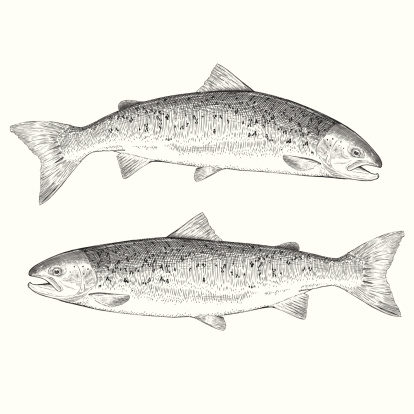Following years of debate, the U.S. Food and Drug Administration (FDA) announced today the approval of the first genetically engineered animal intended for food, the AquAdvantage Salmon. Designed by AquaBounty Technologies, the AquAdvantage Salmon is an Atlantic salmon that reaches market size more quickly than its non-GE-farm-raised counterpart. GE animals are regulated by FDA under the new animal drug provisions of the Federal Food, Drug and Cosmetic Act because “the recombinant DNA (rDNA) construct introduced into the animal meets the definition of a drug.”
Bernadette Dunham, D.V.M, Ph.D., director of FDA’s Center for Veterinary Medicine, said, “The FDA has thoroughly analyzed and evaluated the data and information submitted by AquaBounty Technologies regarding AquAdvantage Salmon and determined that they have met the regulatory requirements for approval, including that food from the fish is safe to eat.”
Some of the requirements for the approval of the GE salmon was that it be safe to eat, the rDNA construct (that DNA trait that makes the salmon grow faster) is safe for the fish itself and that the salmon meet AquaBounty’s claims of faster growth. After analysis of the scientific data, FDA determined that AquAdvantage Salmon is safe for consumption, as nutritious as non-GE Atlantic salmon and that there are no biologically relevant differences in the nutritional profile of the GE and non-GE salmon.
AquAdvantage Salmon are only allowed to be raised in land-based, contained hatchery tanks in two specific facilities in Canada and Panama. They cannot be bred or raised in the United States, as no other facilities are authorized for breeding or raising the GE salmon. FDA, after assessment required by the National Environmental Policy Act, determined that approval of the fish would not pose a significant environmental impact because of the multiple and redundant measures taken to promote such an event. Measures include barriers placed in tanks and plumbing that carries water out of facilities to prevent escape of eggs and fish, and the fact that AquAdvantage Salmon are reproductively sterile, which would prevent propagation in the wild in the event a fish should escape.
According to a report in the Guardian, environmental groups are suing the Canadian government for permitting AquaBounty to produce the AquAdvantage Salmon on Prince Edward Island. The agreement between AquaBounty and the Canadian government allows the company to produce fertile salmon eggs in Canada, to be shipped to Panama where they will grow. The NGOs filing the lawsuit are unconvinced by the measures taken to prevent environmental contamination and allege that the Canadian government breached its own environmental laws by providing AquaBounty a "far wider permit than it was assessed on" and of not following the proper procedures. They are also concerned that this sets a precedent for other companies to produce genetically engineered fish eggs in Canada as well.
Coinciding with this announcement, FDA has also issued two draft guidance documents for companies that want to voluntarily disclose whether their product contains GMOs. One is specific to GE fish and the other to GE plants.
Despite the approval, AquAdvantage Salmon will face difficulty down the line, as several retailers (including Whole Foods Market, Trader Joe’s and Target) have already pledged to not purchase the GE salmon.











